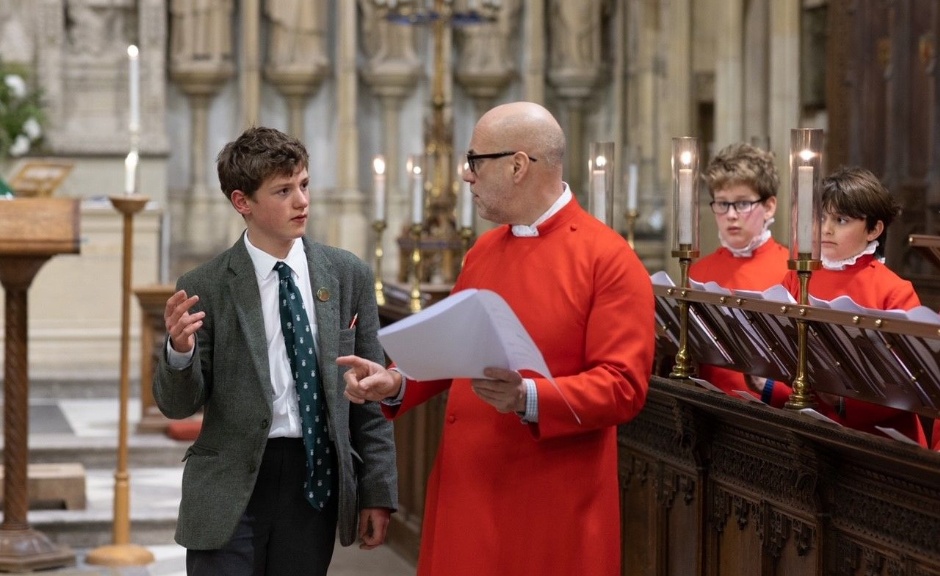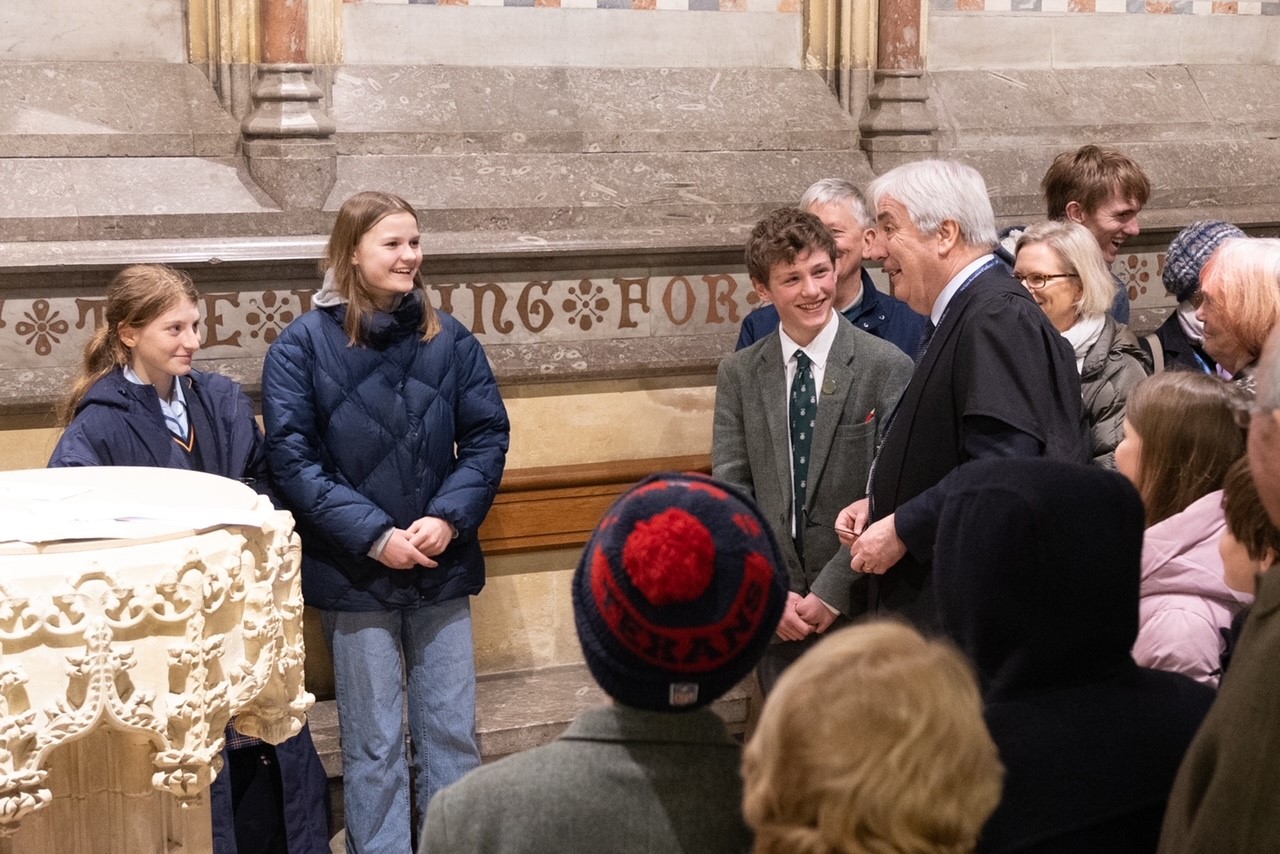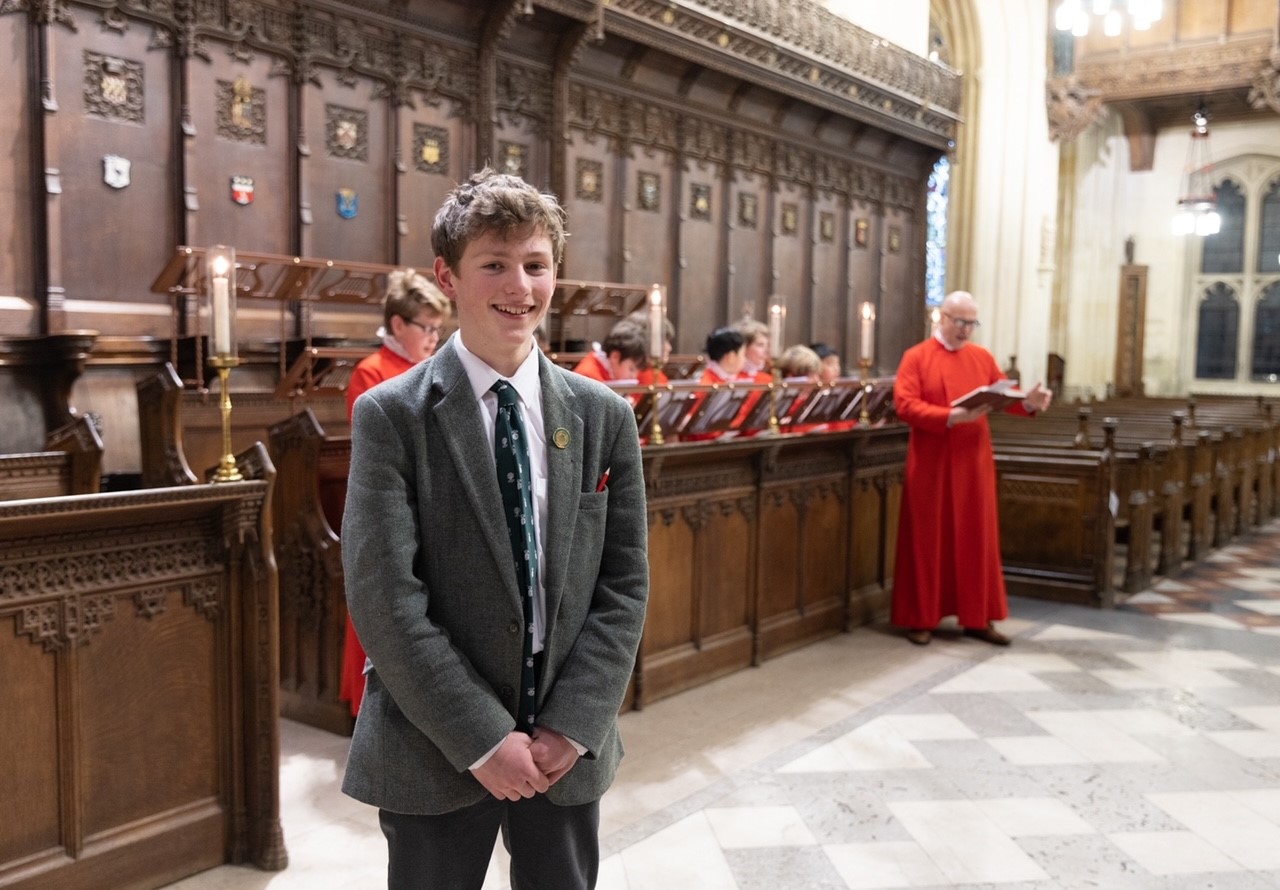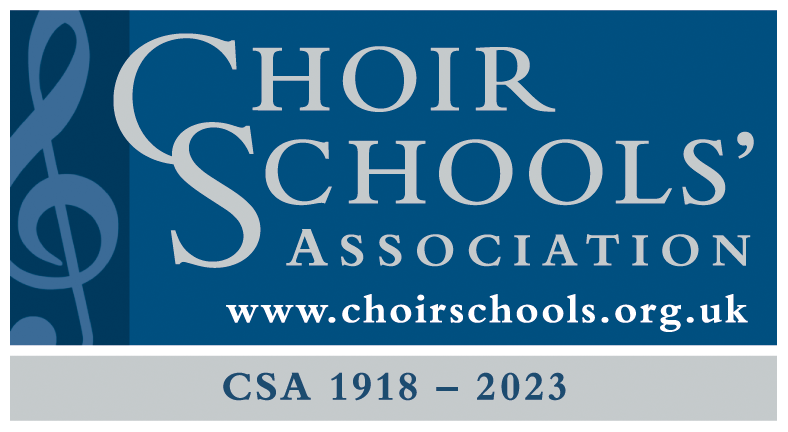Quirister composes 'Winchester Mass'

To witness the first performance of a new work is always an occasion; to be a guest at such a premier a rare privilege. So last evening’s Eucharist in the College Chapel was indeed an occasion, and one to which many had been drawn, considerably swelling the usual Thursday congregation.
One of the joys of Pilgrims’ is the truly astonishing variety of avenues that our boys find to demonstrate their extraordinary talents: the classroom, the sports field, the Concert Hall, even the Magic Circle. But to create the avenue for others to demonstrate their talents is surely exceptional.
The setting of last evening’s Eucharist was the première of a new Missa Brevis, from the pen of one of the Senior Qs – the ‘Winchester Mass’. For those less familiar with liturgical music, the choral setting of the Eucharist has attracted countless composers over the centuries, and continues to do so. Mozart was prolific in delivering Masses as a professional church musician in Salzburg; Haydn delivered them to the Esterhazy family; in the 21st century the new generation of musicians is still drawn to the form. Some Masses are written to be sung a capella, some with organ accompaniment, others performed in the concert hall with full orchestra. But perhaps few are the result of an off-the-cuff challenge from a choirmaster taken up by one of his young charges.
And so it was that the congregation eagerly awaited this guest addition to the Qs’ repertoire.
The Kyrie started with a deceptively simple-looking melodic line which gave way to an antiphonal section, respecting the greatest traditions of liturgical music.
After a motet offering from another, lesser-known, contemporary composer, the Sanctus presented a challenging solo line; a challenge accepted and expertly met by Henry B before the other Qs joined him for the Benedictus.
But the best was still to come. The Agnus Dei opened with a mysterious rising line from the organ followed by a hauntingly beautiful sequence of descending chords from the Qs. This led us into a soaring solo delivered with customary aplomb by Thomas R.
The composer was Guest of Honour at a reception after the service, at which the Headmaster of the College gave him a generous but richly-deserved vote of thanks.
The safeguarding protocol of this newsletter allows me only to credit the composer as William G; but, well, you will have guessed his full identity by now.
Jerry Pett
Q Parent












